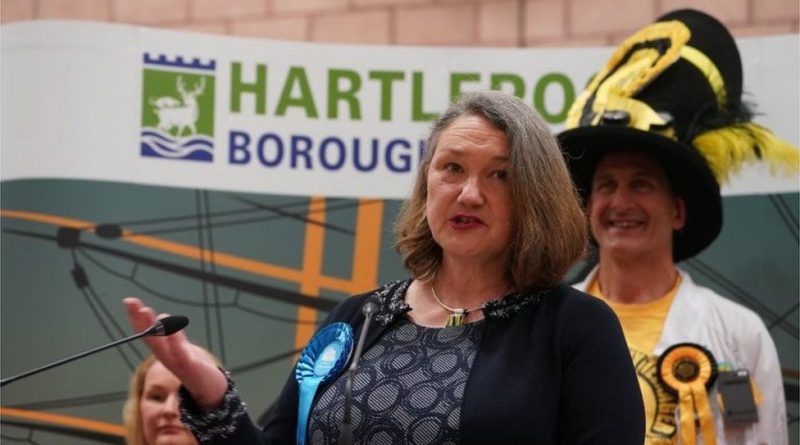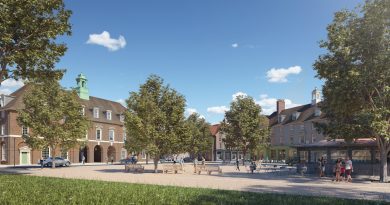Comment: Great weekend for Tories after election wins
By Assistant Editor Connor Steel
WITH the final results from Thursday’s local elections confirmed after three days of counting, the Conservatives and SNP [in England and Scotland respectively] are the big winners as opposition candidates struggled to gain traction in the ballot booths.
But there were both good and bad outcomes for all political parties as the dust settles on a massive exercise in democracy, with some polls postponed in 2020 due to Covid-19 and lockdown restrictions.
For Boris Johnson’s party it was a hugely successful weekend, particularly in the face of criticism over sleaze combined with their initial handling of the pandemic. The Conservatives were able to see further undermining of the Labour Red Wall after winning the Hartlepool MP by-election by a majority of nearly 7,000 votes, with Jill Mortimer becoming the first Tory representative of the constituency since 1964 when it was under a different name.
Furthermore for the Prime Minister, his party gained more than a dozen councils from other parties alongside well over 200 new councillors across England. This was a far cry from a prediction on Monday that Boris Johnson would suffer losses in local authorities, with the electoral support clearly increasing with the Conservative performances in Wales and many city mayoral contests, including the re-election of Andy Street.
But there was one big negative for the UK leader that could have long-term ramifications rather than the short term gains. In Scotland, the ruling national party SNP did brilliantly, smashing almost all its past records and winning 64 out of 129 seats in Holyrood, falling just one short of an overall majority and seeing off the threat of Alex Salmond’s Alba. But the SNP result does mean that another independence referendum is now more likely than ever – something that will prove a challenge for Boris as we move out of the Covid-19 crisis and the focus switches to other issues.
One party that he won’t have to worry about for now is Labour, which has lost many councils and more than 300 councillors across England. Combining that with the defeat in Hartlepool, this is a first test that Sir Keir Starmer has failed and the pressure is building on the leader with a reshuffle this week after he fired Angela Rayner as campaign chair. Poor results are no doubt due to a vaccine boost for the Tories, which was worsened by Labour’s inability to connect in voters and focus on subjects that the majority don’t care about.
Despite these ‘devastating results’ for the Labour Party, there were small seeds of hope for its new leader when looking across the board. It did wonderfully in London, winning the Assembly and Mayoral votes alongside victories in Manchester with the re-election of Andy Burnham. In Wales the party did even better, maintaing its 30-seat record in the Senedd and only missing an overall majority by just one seat. Although many have pointed out these successes come with different ‘figureheads’, such as Mark Drakeford in Wales, they can be seen as good results despite the negative mood that has pervaded the party in recent days.
Statistics wise, it was also a good night for most opposition parties such as the Green Party, which doubled its figures in terms of English councillors as well as maintaining support in Scotland where it won multiple Holyrood seats. Green candidates also took votes from Labour in many areas such as Bristol where the party won 13 new seats, although they fell short of taking control of any council. Similarly the Liberal Democrats increased their control of councils from one to seven and saw an increase of eight councillors overall, which is not bad considering recent opinion polls. And they were just short on many seats in areas like Gosport. Sadly for them, they and the Green Party failed to take advantage of huge issues within the two main parties – something that their aspiring leaders would have looked upon as bonus from these difficult sets of votes.
Independent candidates also did well with 255 successes overall and they forced 29 councils to remain under ‘no overall control’ . This was no doubt boosted by a catastrophic night for Ukip and the Reform UK party, who lost votes to the Conservatives with the Brexit process completed. These two parties might have fared better if they had run in all areas instead of the selected few targeted last week, although the Resident Associations achieved greater success in the same format of running for small areas instead of nationwide.
Overall after a long wait for results, it is fair to say that all parties have positives and negatives with results similar to the 2019 elections: the Tories on fire, Labour struggling and still focusing on any positives with the other opposition groups struggling to break down a two party political wall. But was there really going to be much change? Since March 2020, politics has come to a halt as Covid-19 took hold. In some ways the real test for all political parties will be 2022 votes, which will hopefully take place in a different world of recovery and hope after lockdowns. In reality as the dust settles, this election cycle merely feels like the continuation of 2019 and was in effect a mock exam, before the real tests next May.
UK results in all elections can be seen on the link: National Overview 2021
Charts by Connor Steel; photograph from BBC News




